- Home >
- New Roots New Roots B12 Methylcobalamine 250mcg - 90 Caps - New Roots
New Roots B12 Methylcobalamine 250mcg - 90 Caps - New Roots
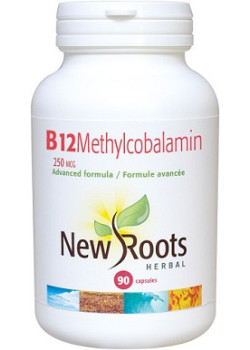
We're sorry, we no longer carry this item.
Check These out
Suggested, Similar, & Related Products:
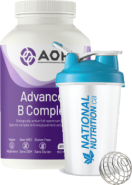
Sale: $52.86
Reg.: $65.97 (Save $13.11)
(Click Add to Select Bonus)
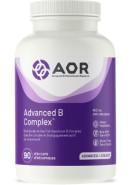
Sale: $37.36
Reg.: $46.63 (Save $9.27)
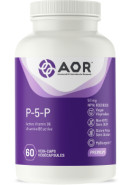
Sale: $27.51
Reg.: $34.34 (Save $6.83)
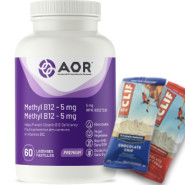
Sale: $26.04
Reg.: $32.51 (Save $6.47)
(Click Add to Select Bonus)
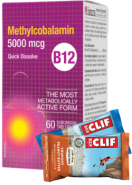
Sale: $11.97
Reg.: $24.99 (Save $13.02)
(Click Add to Select Bonus)
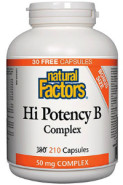
Sale: $19.99
Reg.: $29.99 (Save $10.00)
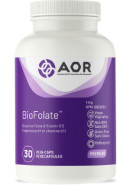
Sale: $20.91
Reg.: $26.09 (Save $5.18)
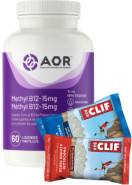
Sale: $51.32
Reg.: $64.06 (Save $12.74)
(Click Add to Select Bonus)
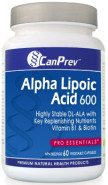
Sale: $29.99
Reg.: $32.99 (Save $3.00)
Or, Shop our Latest Deals:
Shop Now >Format
 Veggie Caps
Veggie Caps
90caps
Dosage
' Take 1 capsule daily with meal or as directed by your health professional.
Important Information
Contains no: Preservative, artificial flavour or colour, sugar, dairy, starch, wheat, gluten, corn, soy or yeast.
Related Videos
No Related VideosArticles by a naturopathic doctor.
New Roots Herbal offers high-quality natural health products like their best-selling probiotics, digestive enzymes, chill pills, strong bones, acidophilus ultra and black cumin seed oil among hundreds more herbal remedies. Founded in 1985 New Roots Canada delivers formulas that were designed to contribute to the prevention and cure of disease at their core. You can buy all New Roots supplements at National Nutrition.ca
About Vitamin B12
Vitamin B12 is a member of the vitamin B complex also called cobalam and is important to good health. There are two types of commercial B 12, cyanocobalamin and methylcobalamin. New Roots Herbal uses only the methyl form as it is the coenzyme form and the only type which can directly participate in homocysteine metabolism. In addition, converting homocysteine to methionine via methyl B12 generates an increased supply of SAMe (S-adenosyl methionine), the body?s most important methyl donor. Indeed, some of the benefits of methyl B12, such as protection from neurotoxicity, appear to derive from increased production of SAMe. It helps maintain healthy nerve cells and red blood cells, and is also needed to make DNA, the genetic material in all cells. Vitamin B12 is bound to protein in food. Hydrochloric acid in the stomach releases vitamin B12 from protein during digestion. Once released, B12 combines with a substance called intrinsic factor (IF) before it is absorbed into the bloodstream.
Bacteria synthesize B12 exclusively and common sources are found primarily in meat, eggs and dairy products. Vitamin B12 is necessary for the synthesis of red blood cells, the maintenance of the nervous system, and is very important for the growth and development in children. Deficiency can cause anemia and the degeneration of nerve fibres. Irreversible neurological damage can also occur.
Vitamin B12 is also necessary for the rapid synthesis of DNA during cell division. This is especially important in tissues where cells are dividing rapidly, particularly bone marrow tissues responsible for red blood cell formation. If a deficiency occurs, DNA production is disrupted and abnormal cells called megaloblasts are formed. This results in anemia. Symptoms include excessive tiredness, breathlessness, listlessness, pallor, and poor resistance to infection. Other symptoms can include a smooth, sore tongue and menstrual disorders. Anemia may also be due to folic acid deficiency, folic acid also being necessary for DNA synthesis.
An insulating fatty sheath comprised of a complex protein called myelin surrounds our nerves. B12 plays a vital role in the metabolism of these fatty acids essential for the maintenance of myelin. Prolonged B12 deficiency can lead to nerve degeneration and irreversible neurological damage.
When deficiency occurs, it is more commonly linked to a failure to effectively absorb B12 from the intestine rather than a dietary deficiency. Absorption of B12 requires the secretion from the cells lining the stomach of a glycoprotein, known as intrinsic factor. The B12- intrinsic factor complex is then absorbed in the ileum (part of the small intestine) in the presence of calcium. Certain people are unable to produce intrinsic factor and the subsequent pernicious anemia is treated with injections of B12.
Vitamin B12 can only be stored in small amounts by the body. Total body store is 2-5 mg in adults and around 80% of this is stored in the liver.
Vitamin B12 is excreted in the bile and is effectively reabsorbed. This is known as the enterohepatic circulation. The amount of B12 excreted in the bile can vary from 1 to 10 mcg (micrograms) a day. Reabsorption is the reason it can take over 20 years for deficiency disease to develop in people changing to diets absent in B12. In comparison, if B12 deficiency is due to a failure in absorption it can take 3 years for deficiency disease to occur
.
- Reviews
- POST A NEW REVIEW
Tell everyone what you think about this item!















